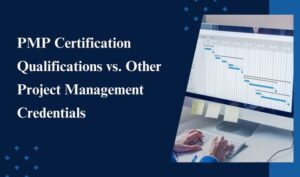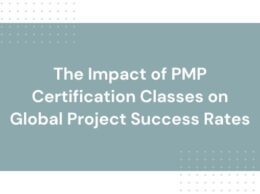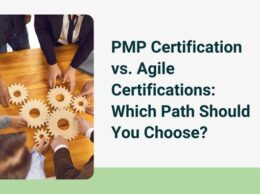In the competitive world of project management, certifications can act as a catalyst for career growth. Among the plethora of options available, the Project Management Professional (PMP) certification stands out as a globally recognized credential. But how does it compare to other certifications like PRINCE2, CAPM, or Agile certifications? Let’s break it down in a way that’s easy to follow.
Why PMP Certification Qualifications Matter
The PMP certification, administered by the Project Management Institute (PMI), has earned its reputation as the gold standard in project management. It isn’t just another credential—it’s proof of your ability to lead and manage complex projects across industries. The prerequisites alone—extensive project management experience and training—speak to its rigorous standards.
With PMP certification, you demonstrate expertise in three domains:
- People: Leadership and team management.
- Processes: Technical skills for efficient project execution.
- Business Environment: Aligning projects with organizational goals.
This comprehensive approach gives PMP-certified professionals a significant edge in high-demand industries like IT, construction, and healthcare, which consistently seek advanced project management expertise.
Comparing PMP to Other Certifications
1. PMP vs. PRINCE2
PRINCE2 (Projects IN Controlled Environments) is a methodology-focused certification popular in Europe and government sectors. While PMP emphasizes a broad spectrum of project management practices, PRINCE2 focuses on structured processes and roles within a project. If you’re eyeing global versatility, PMP may be the better choice. On the other hand, PRINCE2 is ideal for those specializing in environments that value rigid frameworks.
2. PMP vs. CAPM
The Certified Associate in Project Management (CAPM) is an entry-level certification also offered by PMI. It’s tailored for individuals starting their project management careers and requires less experience compared to PMP. Think of CAPM as the stepping stone, while PMP is the career-defining milestone. If you’re seasoned and ready to lead large-scale projects, PMP is your go-to.
3. PMP vs. Agile Certifications (PMI-ACP, CSM)
Agile certifications like PMI-ACP (Agile Certified Practitioner) or CSM (Certified ScrumMaster) focus on Agile methodologies. They are excellent for professionals managing iterative and adaptive projects, especially in tech-driven industries. However, PMP covers both traditional (Waterfall) and modern (Agile/Hybrid) methodologies, making it a versatile option for diverse project environments.
4. PMP vs. CompTIA Project+
CompTIA Project+ is another entry-level credential targeting IT professionals managing smaller projects. While it’s valuable for gaining foundational knowledge, PMP offers advanced skills and global recognition, making it more suitable for senior roles
Benefits of PMP Certification Over Others
- Global Recognition: PMP-certified professionals are sought after in over 200 countries.
- Higher Earning Potential: PMP holders earn 25% more than their non-certified peers, according to PMI’s surveys.
- Versatility: Unlike specialized certifications, PMP spans multiple methodologies, industries, and roles.
- Career Mobility: Whether you’re leading a multinational IT project or launching a local infrastructure initiative, PMP credentials open doors.
Real Stories: Why PMP Changed Careers
An IT project manager, transitioned into senior leadership after earning her PMP certification. “The rigorous training gave me the confidence to lead multimillion-dollar projects,” she shares. Similarly, Ravi, an engineer, credits PMP with helping him secure international assignments. Such testimonials highlight how PMP transforms career trajectories
Making the Right Choice
Choosing a certification boils down to your career stage, industry, and aspirations:
- Evaluate the time, cost, and effort required for each certification.
- Align the credential with your industry demands.
- Consider pursuing multiple certifications if they complement your career path.
FAQs
What are the eligibility requirements for PMP certification?
PMP requires 36–60 months of project management experience, a four-year degree or equivalent, and 35 hours of project management training.
Is PMP better than Agile certifications like PMI-ACP?
PMP is broader, covering predictive, Agile, and hybrid approaches, while PMI-ACP focuses solely on Agile methodologies.
Can beginners opt for PMP certification?
Beginners are better suited for CAPM, as PMP requires extensive experience.
How does PMP certification impact salaries?
PMP-certified professionals earn significantly more, with a global average of 25% higher salaries compared to non-certified peers.










